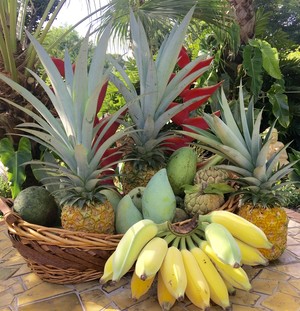30 Oct Thu 2014
Positive impact of plants
Plants are good company...
Study supports positive impact of plants in office and school interiorscapes
Dr. Tina Marie (Waliczek) Cade, Professor of Horticulture, Department of Agriculture at Texas State University; Adjunct Professor in the Department of Horticultural Sciences at Texas A&M University
In a study conducted by researchers at Texas State University, plants were placed in classrooms to evaluate their effect on course grades and overall student satisfaction with the course and instructor. Coursework was taught by the same professors in the same rooms during one semester. Throughout the semester, the experimental class of students was treated by including an assortment of tropical plants within the classroom. Plants were not present in the control classroom of the study.
At the end of the semester, the official university course and instructor evaluation survey was administered and grades were collected for individual students. No differences were found in comparisons of grades/student course performance, but differences were found in comparisons of overall course and instructor evaluation scores of treatment and control groups in the areas of learning, enthusiasm (of instructor), and organization (of instructor).
Students in the experimental classroom reported feeling “more homelike,” “relaxed; more relaxing,” “keep you alive and interested,” “made it easier,” “warmer,” “calming,” “less boring; looked at during lecture,” “less caged in,” “trees helped grade; took the edge off.” Differences were most apparent in students in the classroom that was windowless and stark. In other words, the plants appeared to have the greatest impact on students in the room that was void of other natural elements.
In a job satisfaction survey, posted on the Internet and administered to office workers in Texas and the Midwest, interiorscaping also was found to have a positive effect on perceptions of job satisfaction. Data collected compared levels of job satisfaction of employees who worked in office spaces with live interior plants or window views of exterior green spaces with employees who worked in office environments without live plants or windows.
The findings indicated that individuals who worked in offices with plants and windows reported they felt better about their job and the work they performed, and reported higher overall quality-of-life scores. The results pertained to individuals regardless of age, ethnicity, salary, education levels, and position. However, in gender comparisons, males in offices with plants rated higher job satisfaction statements compared with males working in offices with no plants, while no differences were found in comparisons of female respondents.
Dr. Tina Marie (Waliczek) Cade is Professor of Horticulture for the Department of Agriculture at Texas State University and an adjunct professor in the Department of Horticultural Sciences at Texas A&M University. She is associate editor for the journal, HortTechnology, and the Journal of Texas Agriculture and Natural Resources. Dr. Cade can be reached at tc10@txstate.edu

